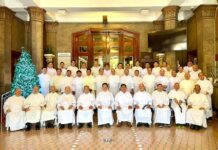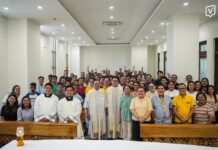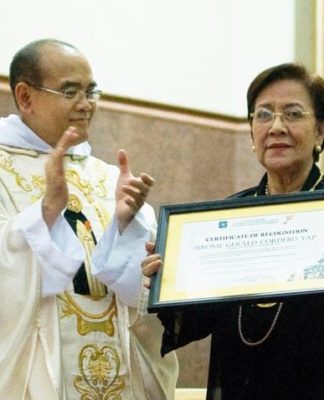REFLECTING the dearth on research in the University, records of the grants office show millions of pesos allotted to professorial and research chairs have remained untouched, and are in fact being used for other purposes where there are more requests for funding, such as travel expenses for conferences abroad.
Figures from the grants office showed that the budget of P17 million for professorial and research chairs, a recognition given to a faculty member who must present a research paper every year, was unused from June 2007 to May 2008.
“There could be faculty members who had professorial chairs last year but did not seek funding from the grants office,” said Vincent Glenn Lape, executive assistant. “Instead, they may have sought the help of their respective colleges or faculties.”
He said every college and faculty has funding allocations for research and that the grants office is just “an additional support to the University if the need arises.”
Lape said some of the money for professorial chairs was instead used to finance University projects that do not have specific funding from the UST Research and Endowment Foundation, a separate corporation that serves as UST’s arm to raise funds for research.
These projects have incurred a deficit of P856,516.60, he said.
“In rechanneling, we have to consider the flexibility of the fund. The fund should be donated for general research purposes and not only for a specific research. If a donor has given an amount of money for research in Biochemistry, it should be spent for Biochemistry alone,” Lape told the Varsitarian.
He said if the grants office, the implementing arm of the foundation, deems a certain project “essential,” rechanneling is done to support the research.
Lape, however, was quick to add that not all funds are transferable, adding that the rechanneling of funds depends on what is stated in the agreement of donation between the foundation and the donor.
In the case of the professorial and research chair funds last school year, Lape said only funds for “general research,” or money donated without any specific purpose indicated by the donor, were rechanneled.
“Since nobody is availing of the professorial/research chair grant, we are now also using the fund to assist travel for research which is in demand,” he said.
A total of P390,933.68 was spent for eight travel grants last academic year. Six out of town continuing professional development (CPD) projects were also recorded, amounting to a sum of P180,944.90.
Travel grants are given to faculty members who are to present theses or research papers abroad.
Lape, however, refused to disclose the total amount that have been rechanneled from professorial/research chair funds to support other projects, citing confidentiality.
The Research and Endowment Foundation is a non-stock, non-profit institution and an independent entity from UST. It provides financial assistance through grants to University projects, namely: professorial/research chairs, faculty assistance and development projects, institutional development, scholarship, and community outreach projects.
Faculty assistance being extended by the foundation include thesis/dissertation grants, travel grants, and continuing professional development programs.
Since the Research and Endowment Foundation is a non-profit institution, the principal amount of donated funds is retained, and only the accumulated interest is spent for projects.
Interest earnings are divided as follows: 15 percent goes to the operating fund of the foundation, 10 percent to the non-funded research fund, and 75 percent to grants and awards.
Based on its latest financial report, the foundation had P393.6 million in assets, with professorial chairs allocated P46.3 million in interest-earning funds. Some P2 million in interest was earned in 2007 for use in grants and awards.
The deficit in the non-funded research fund means that the interest accumulated through the 10 percent share every academic year is lower than the amount of the projects being channeled to it, causing the fund to run out.
Lape said the release of non-funded research funds has been suspended until losses have been recovered.
“Many projects were channeled to the non-funded research funds for the last few years, which caused the deficit. Of course, the channeling was with understanding that the funds may be recovered through its 10 percent share (on the interest of trust funds),” Lape explained.
Fr. Rolando de la Rosa, O.P., the foundation president, said he has instructed the grants office to stop the rechanneling of funds when there is already a deficit on the receiving end.
He told the foundation to instead seek more from donors.
“Why grant if there is no interest left? I told them if the amount donated is already depleted, do not approve any grant anymore,” De la Rosa told the Varsitarian.
The Rector said funds generated by the research foundation through donation are separate from the University, which has its own budget for research, which amounts to around P60 million to P80 million annually.
















